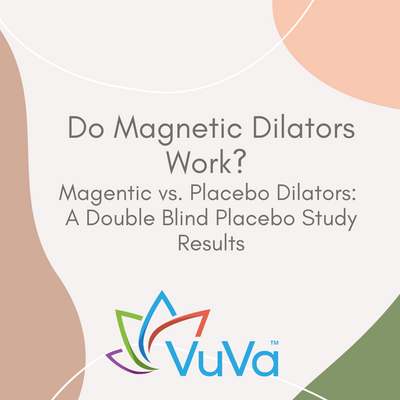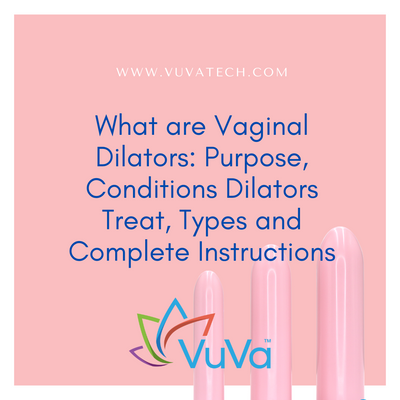
| Tara Langdale
Premature Menopause and Why Sex Hurts
The menopause generally occurs around the age of 51, but it can happen later; occasionally it comes earlier than expected and includes pelvic floor dysfunction unfortunately. For 1% of women, it comes even before they reach 40 years of age, and this is considered premature. Premature menopause can come as a bit of a shock, and most women who reach the menopause early can find themselves unprepared for the changes it brings. If you reach the menopause between 41 and 45 years of age, this is called ‘early menopause’.
It is impossible to predict when you’ll reach the menopause but you’re likely to have an inkling, since perimenopause symptoms usually start up well ahead of the menopause itself. You’ll know you’ve reached the menopause when you haven’t had a period for 12 months in a row. This indicates that your ovaries have finally lost the ability to produce hormones and ovulate.
Below we’ll explain why premature menopause happens, what the symptoms are, how to tell if you’ve got it, why sex hurts during the menopause, and what you can do to manage your symptoms…
What causes premature menopause?
It’s hard to say for sure, but experts believe that smoking can be a factor. For some women it happens due to surgery or medical treatments like chemotherapy or radiotherapy in the pelvic area. Chemotherapy and radiotherapy can lead to premature menopause or premature ovarian insufficiency (POI) because they impair follicular maturation (and/or direct primordial follicle loss).
Sometimes autoimmune disorders can bring about premature menopause (for example, lupus, hypothyroidism and Graves’ disease); sometimes a family history of premature menopause can indicate a higher likelihood of going through the menopause early.
What are the symptoms of premature menopause?
There isn’t really any difference between the symptoms of natural menopause and premature menopause symptoms. When your estrogen levels drop significantly (or fluctuate before they finally decline), you can expect to experience at least some of the following menopause symptoms:
- Lighter or heavier than normal periods
- Irregular or missed periods, followed by no periods at all
- Hot flashes
- Vaginal dryness
- Thinner vaginal tissues, and decreased flexibility
- Mood swings and emotional changes
- Insomnia or difficulty staying asleep
- Diminished libido
- Irritability of the bladder or incontinence
- Dry eyes, mouth or skin
- Painful sex (dyspareunia)
How do you know if you’re going through premature menopause?
Perhaps you’ve tried to get pregnant for 12 months or more without success. This alone could be a sign, but it’s an even stronger indicator if you’re around 40 and experiencing any of the above symptoms. However, it’s important to consult a Doctor for a proper diagnosis of premature menopause because some of the symptoms could be caused by another condition.
Your Doctor is likely to perform a physical exam and take a blood sample to make sure no other conditions are causing your symptoms. They might book you in to test your estradiol levels. Estradiol is a form of estrogen, and if your levels have dropped below 30, you could be in the menopause prematurely. They will almost certainly conduct a blood test to measure your levels of FSH (follicle stimulating hormone). If your FSH levels have increased to 40 mIU/mL or above, it’s a sure-fire sign that your ovaries are not producing as much estrogen as they once were.
Why sex hurts during menopause
Unfortunately, during the menopause you can experience sexual pain, which can cause lots of stress and worry for women in sexual relationships. So, why does sex hurt during menopause? There are several possible factors:
Estrogen decline can make the vaginal tissues thinner and drier, leading to pain and discomfort during sex. The dryness can cause friction during penetration, so you might benefit from using a water-based personal lubricant.
Another problem caused by declining estrogen levels is that your tissues become less flexible, so it can feel a little tight down there. When your vagina starts to get tighter and drier to the point that sex becomes uncomfortable, it’s likely that you’re suffering from vaginal atrophy, which is common after the menopause. One of the best solutions for vaginal atrophy is using vaginal dilators, as they help to keep the vaginal capacity large enough for comfortable sex.
You may also find that as your libido has dropped and you’re less motivated to have sex, the act can become painful as you’re not relaxed enough to enjoy it. It’s not uncommon for women to become anxious about sex, especially if their recent experiences have been painful. Occasionally this can lead to the development of vaginismus, which is a vicious circle.
What are the best menopause treatments available?
Aside from the popular DIY at home methods we mentioned above (using personal lubricants and vaginal dilators), studies indicate that menopausal hormone therapy (MHT) is the most effective treatment for vasomotor symptoms (for example, hot flashes and vaginal atrophy). That’s because the benefits tend to outweigh the risks, provided you are below 60 years of age.
Estrogen therapy (ET) comes in the form of pills, patches, transdermal sprays or gels and is commonly used to menopause symptoms. However it does come with various health risks so you may not be a candidate for this (depending on your medical history or the reasons for your premature menopause). Topical estrogen creams or rings may be a more viable option for isolated symptoms.
For those preferring a more natural approach there are other options available. For instance, plant-based Bioidentical Hormone Therapy and various herbs and natural preparations. Two of the most popular are Vitex and Black Cohosh.
You might be interested in our guide on saying goodbye to painful sex after the menopause, and our blog pages contain plenty of articles designed to help you handle the menopause… so feel free to take a look around!
References
Pubmed.ncbi.nlm.nih.gov/26316242/ - Endocrinology and Metabolism Clinics of North America, vol. 44, no. 3, pp. 543–557.
Menopause.org.au/hp/information-sheets/319-early-menopause-due-to-chemotherapy-radiotherapy - 2015, Australasian Menopause Society
Pubmed.ncbi.nlm.nih.gov/26444994/ - Treatment of Symptoms of the Menopause: An Endocrine Society Clinical Practice Guideline [Journal of Clinical Endocrinology and Metabolism, vol. 100, no. 11, pp. 3975–4011]
Dilator therapy helps improve pelvic health and female sexuality. They are used to help a wide variety of female health concerns. Speak to your doctor today about how dilator therapy can help you.
Do you need to order vaginal dilators so you can start your pelvic floor therapy process? Made in the USA. Visit www.vuvatech.com
VuVa Dilator Company Helpful Links:
How do Neodymium Vaginal Dilators work?
7 Reasons for a Tight Vagina and How to Loosen
How to Relax Vaginal Muscles, Vaginismus & Sex
Vaginal Stretching - Keeping in Shape with Dilators
Do Dilators Really Work? Yes, and They can Improve Your Sex Life!
Shop for VuVa Vaginal Dilators
Tara Langdale Schmidt is the inventor of the VuVa Dilator Company. She has pelvic floor dysfunction herself and wanted to create a dilator set that is made in America that women can trust. VuVatech has been in business since 2014 and has helped over 50,000 women all over the globe. She patented the Neodymium Vaginal Dilator, that is clinically proven to help with blood flow and nerve pain.














